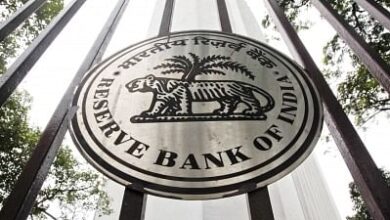Reserve Bank of India sets out fintech self-regulation framework

The new structure is intended to encourage cooperation, innovation and ethical behaviour in the fintech sector.
The Reserve Bank of India (RBI) is urging responsible innovation and growth within the Indian fintech industry by establishing a framework for recognising Self-Regulatory Organisations (SROs). This framework, finalised in May 2024 after incorporating stakeholder feedback on a draft released earlier in the year, outlines the characteristics, eligibility criteria, functions and responsibilities to which SROs must adhere.
The RBI has acknowledged the immense potential of the fintech sector to revolutionise financial services delivery in India, but has also raised concerns that the rapid growth of this industry necessitates a healthy regulatory framework to ensure consumer protection, financial stability and responsible innovation. In a press release, the RBI accentuated the potential benefits of self-regulation, stating: “By pivoting towards a culture of self-governance, fintechs could proactively set and adhere to industry standards and best practices. This approach could empower the sector to demonstrate its commitment to responsible conduct and innovation even in the absence of formal regulation.” The central bank sees SROs as playing a critical role in nurturing collaboration within the industry, enabling Fintech companies to collectively address challenges, promote an environment conducive to innovation, and encourage a shared commitment to ethical business practices.
THE MULTIFACETED ROLE OF SROs
The RBI expects SROs to act as guardians of ethical conduct and responsible innovation within the Fintech industry. This multifaceted role encompasses several key responsibilities:
Ensuring adherence to standards and regulations
SROs must establish and enforce guidelines for consumer protection, data security and data privacy. This includes ensuring that member fintech companies comply with industry standards and relevant legal and regulatory frameworks, with the SRO authorised to investigate and take disciplinary action against members who fail to adhere to these standards.
Bridging the gap between industry and regulator
SROs are expected to act as a bridge between fintech companies and the RBI, facilitating communication by channelling industry concerns and recommendations to the central bank. Additionally, SROs can advocate for necessary regulatory changes that support responsible innovation and growth within the fintech sector.
Innovation with equity
The new framework recognises the importance of SROs promoting innovation equitably within the industry, stating that this can be achieved by establishing minimum eligibility criteria for membership that ensure a diverse range of fintech companies are represented. SROs can also bridge the skills gap by providing specialised knowledge and expertise to smaller entities, alongside offering guidance and contributing to capacity building through training programmes. Maintaining a repository of industry data and trends can further serve as a valuable resource for research and policy making.
THE FUNCTIONS OF AN SRO: A DEEP DIVE
The RBI has outlined a comprehensive range of functions that SROs are mandated to perform. These functions are seen as key to ensuring the responsible growth and stability of the fintech sector:
Standard-setting
This involves establishing a code of conduct for advertising and marketing practices, ensuring responsible behaviour from fintech companies, with SROs responsible for developing baseline governance standards for the industry and specifying consequences for violations of established rules. Data collection and storage must be undertaken in strict compliance with relevant data privacy regulations.
Oversight and enforcement
Creating a resilient framework for oversight and enforcement activities is crucial, and SROs must develop and implement suitable surveillance mechanisms to effectively monitor member compliance with regulations and standards. Maintaining data confidentiality is paramount, and SROs are required to establish clear standards of conduct for their members. A defined range of disciplinary actions, including cautions, reprimands and expulsions, along with monetary penalties, provides SROs with the necessary tools to enforce compliance.
Development
Promoting a culture of compliance within the fintech industry is a key objective of SROs. According to the RBI, this can be achieved by facilitating the exchange of expertise and best practices among members, alongside organising training programs to enhance knowledge and skills. SROs are also expected to disseminate sector-specific information through various channels to raise awareness about developments, trends and best practices within the fintech space. Furthermore, the framework encourages SROs to actively promote research and development through studies, surveys, and discussions. To ensure inclusivity, SROs are mandated to extend guidance and support to smaller fintech entities, irrespective of their membership status.
Grievance redress and dispute resolution
Establishing a robust framework for addressing customer grievances and resolving disputes efficiently, fairly and transparently is a core responsibility of SROs. This includes working towards customer education about fintech products and services, conducting periodic assessments of the customer service standards offered by members, and implementing regular reviews of their grievance redressal framework to ensure its effectiveness.
ELIGIBILITY FOR SRO MEMBERSHIP
Membership of an SRO is primarily open to fintech companies that are not currently regulated by any financial sector regulator, and which are domiciled or registered in India. The framework also allows for membership by so-called “regulated entities” (excluding banks). Participation is voluntary, and while membership fees may vary based on size and capabilities, the RBI has made it clear that the fee structure must be reasonable and non-discriminatory. The number of SROs to be recognised will be determined based on the nature and volume of applications received by the RBI.
REGISTERING AS AN SRO: THE REQUIREMENTS
To be recognised as an SRO, an entity must meet the following stringent criteria established by the RBI:
Legal structure
The SRO must be established as a not-for-profit company under Section 8 of the Companies Act 2013, to ensure that the organisation operates for the benefit of the industry and not for private gain.
Shareholding diversity
To help ensure a balanced and independent decision-making process within the SRO, the RBI mandates diversification of the SRO’s shareholding, with no single entity permitted to hold more than 10% of the paid-up share capital.
Financial stability
The SRO must achieve a minimum net worth of INR 20 million (GBP 190,000) within one year of receiving recognition from the RBI or before commencing operations to ensure that it has the resources to effectively fulfil its responsibilities.
Infrastructure and capability
The SRO must possess the necessary infrastructure and capabilities to effectively discharge its responsibilities on a consistent basis, including an IT infrastructure that allows for the deployment of technological solutions in a timely manner.
User-harm management
The framework requires SROs to establish effective systems for managing “user harm” from practices including fraud, mis-selling, unfair practices, unauthorised transactions or any other form of misconduct that harms the consumers of financial services.
Overseas operations
SROs are prohibited from setting up entities or offices overseas without prior approval from the RBI. This ensures regulatory oversight and maintains control over SRO activities.



